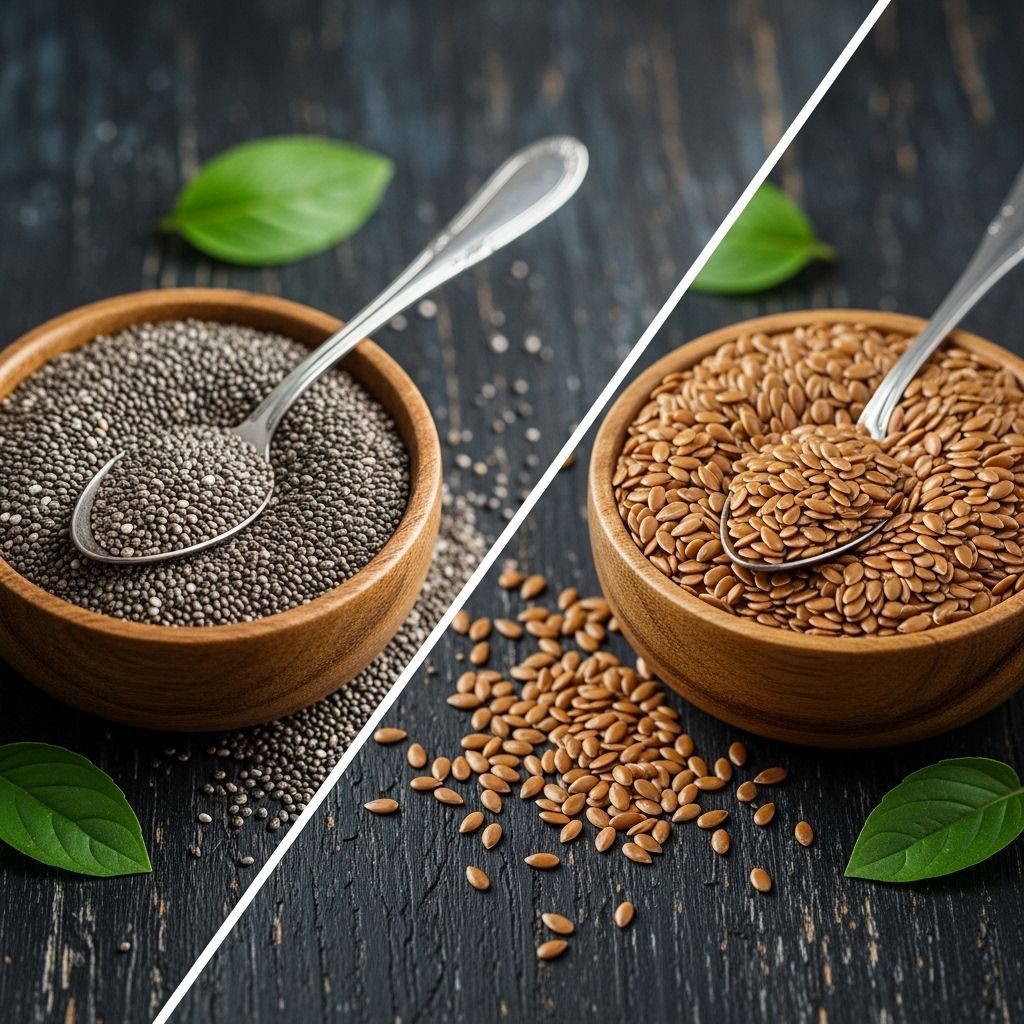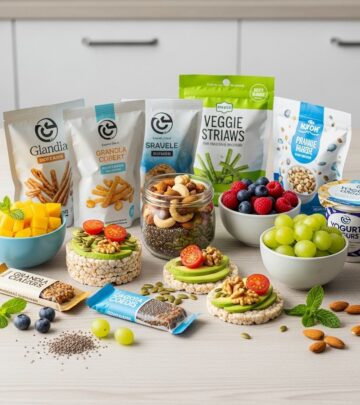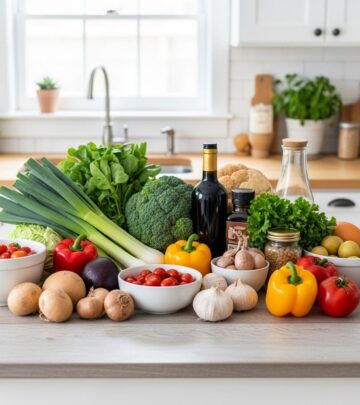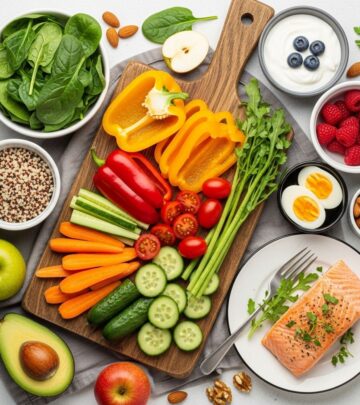Chia Seeds vs. Flax Seeds: A Comprehensive Nutrition and Health Guide
Compare their fiber, omega-3, and protein to pick the best option for your diet.

Chia seeds and flax seeds are two of the most popular superfoods praised for their impressive nutritional profiles and numerous health benefits. While both seeds offer plant-based protein, fiber, omega-3 fatty acids, and a variety of vitamins and minerals, there are important differences between them that can influence your choice. This guide will help you compare chia seeds and flax seeds across nutrition, health advantages, usage, and more, so you can make smart, personalized decisions for your diet.
What Are Chia Seeds?
Chia seeds are tiny black or white seeds from the Salvia hispanica plant, native to Central and South America. Historically a staple in Aztec and Mayan diets, chia seeds are now celebrated worldwide for their ability to absorb water and their potent nutrient content. They are most often consumed whole and become gelatinous when soaked in liquid, making them popular for puddings, drinks, and baking.
- Appearance: Small, oval-shaped, black or white seeds
- Flavor: Mild, slightly nutty, and easily blends into most recipes
- Key uses: Puddings, smoothies, toppings, baking, drinks
What Are Flax Seeds?
Flax seeds come from the flax plant (Linum usitatissimum) and are typically brown or golden in color. Used since ancient times for food and fiber, flax seeds have recently flourished as part of the health food movement. Flax seeds are usually consumed ground, as whole flax seeds may pass through the digestive tract undigested.
- Appearance: Flat, oval-shaped, brown or golden seeds
- Flavor: Mildly nutty, slightly earthy
- Key uses: Smoothies, baked goods, oatmeal, yogurt, as an egg substitute
Nutrition Comparison: Chia Seeds vs. Flax Seeds
Both chia seeds and flax seeds are nutrient-dense, offering high levels of plant-based omega-3s, fiber, protein, vitamins, and minerals. However, their specific nutritional strengths differ. Here is a side-by-side comparison for a typical serving (2 tablespoons):
| Nutrient | Chia Seeds (2 tbsp, 26g) | Flax Seeds (2 tbsp, 17g, ground) |
|---|---|---|
| Calories | 130 | 74 |
| Total Carbohydrates | 10g | 8g |
| Fiber | 10g | 4g |
| Fat | 7g | 6g |
| Omega-3 (ALA) | 2.5g | 3.2g |
| Protein | 6g | 2g |
| Calcium | 132mg | 35mg |
| Iron | 2mg | 0.8mg |
| Magnesium | 95mg | 54mg |
| Phosphorus | 244mg | 90mg |
| Potassium | 198mg | 114mg |
| Vitamin B1 (Thiamine) | 0.176mg | 0.230mg |
| Vitamin B3 (Niacin) | 8.83mg | 3.08mg |
| Lignans (Antioxidant) | Lower content | Very high |
Key Takeaways:
- Chia seeds have more fiber, protein, calcium, and iron per serving.
- Flax seeds are a better source of omega-3 ALA and lignans (antioxidants).
- Both are low in carbohydrates and provide beneficial minerals.
Health Benefits of Chia Seeds
Chia seeds are touted as a superfood thanks to their exceptionally high fiber and protein content, plus an array of essential minerals and antioxidants.
- Digestive Health: The high fiber content, especially soluble fiber, promotes satiety, aids in healthy digestion, and supports gut microbes.
- Bone Health: Rich in calcium, magnesium, and phosphorus, all vital for bone density.
- Heart Health: Provide vegan-friendly omega-3s to help manage cholesterol levels and blood pressure.
- Blood Sugar Regulation: May help slow the absorption of sugar, assisting with glycemic control.
- Complete Protein: Chia seeds are a complete protein, supplying all nine essential amino acids—unusual among plant foods.
- Antioxidant Support: Contain various antioxidants that help protect cells from oxidative stress.
Health Benefits of Flax Seeds
Flax seeds offer their own impressive set of health boons, especially when ground, which improves nutrient absorption.
- Rich in Lignans: Flax seeds are one of the top sources of lignans, antioxidants that may protect against certain cancers.
- Omega-3 Alpha-Linolenic Acid (ALA): Contains more ALA than chia, supporting heart and brain health.
- Digestive Health: Good levels of both soluble and insoluble fiber help move food through the digestive tract and nourish healthy gut bacteria.
- Cholesterol and Blood Pressure: Both fiber and ALA contribute to better cholesterol profiles and may help lower blood pressure.
- Hormonal Benefits: Phytoestrogens from lignans may support hormone balance and menopausal health.
Key Differences Between Chia Seeds and Flax Seeds
- Protein: Chia seeds are higher (6g vs 2g per 2 tablespoons). If protein is a dietary goal, chia is the better choice.
- Fiber: Chia seeds contain more fiber, including both soluble and insoluble types.
- Omega-3 Content: Flax seeds provide more ALA per serving, but both are top vegan-friendly omega-3 sources.
- Lignans: Flax seeds have much higher lignan content for antioxidant and potential cancer-fighting support.
- Calcium & Iron: Chia seeds are a richer source.
- Ease of Digestion: Flax seeds should be ground before eating for optimal absorption of nutrients; chia seeds can be eaten whole or soaked.
- Egg Replacement: Both can be used as a vegan egg substitute in baking, but flax ‘eggs’ are more commonly used due to their binding power.
- Texture: Chia seeds form a gel when soaked, suitable for puddings; flax seeds add a nuttier crunch, especially when ground.
How to Use Chia Seeds and Flax Seeds
Both seeds are versatile pantry staples that can be used in a variety of ways.
- Puddings: Chia seeds are ideal for making creamy, gelled puddings
- Oatmeal & Yogurt: Stir in ground flax seeds or whole chia seeds for extra nutrition
- Smoothies: Add 1–2 tablespoons of either seed for added thickness, fiber, and healthy fats
- Baking: Incorporate ground flax and chia into muffins, breads, pancakes, and cookies
- Egg Replacement: Mix 1 tablespoon ground flax or chia with 2.5–3 tablespoons of water and let sit to replace 1 egg in recipes
- Homemade Granola or Energy Bars: Add for crunch and nutrition
- Sprinkle on Salads or Roasted Veggies: Use for flavor and nutrient boost
Possible Side Effects and Who Should Avoid Them
While chia and flax seeds are safe for most people, there are a few considerations to keep in mind:
- People with allergies to seeds should consult a health professional before eating them.
- Both seeds are high in fiber; introduce them slowly to avoid digestive discomfort such as bloating or gas.
- Those taking blood thinners should consult a doctor, as the omega-3s in both seeds may have mild blood-thinning effects.
- Chia seeds, especially, absorb liquid and expand; always soak them adequately to prevent throat discomfort or risk of choking.
Practical Tips for Buying and Storing
- Chia seeds can be stored whole in a cool, dry place for months without losing potency.
- Flax seeds are best consumed ground for maximum absorption and should be refrigerated to prevent the healthy fats from going rancid.
- Opt for organic, non-GMO varieties when possible for both types of seeds.
Which Should You Choose?
Ultimately, both chia seeds and flax seeds are excellent nutrient-rich additions to a healthy diet. Consider your dietary priorities and preferences when making your pick:
- Choose chia seeds if: You want more fiber or protein, need a source of plant-based complete protein, or like their gelatinous texture for puddings and drinks.
- Opt for flax seeds if: You want stronger omega-3 (ALA) or antioxidant benefits from lignans, or if you prefer a ground seed for baking or improved nutrient absorption.
- For most people, alternating or combining both seeds is a simple way to enjoy the unique benefits of each.
Frequently Asked Questions (FAQ)
Are chia seeds a complete protein?
Yes. Chia seeds are one of the few plant foods that provide all nine essential amino acids, making them an excellent complete protein for vegans and vegetarians.
Should flax seeds be eaten whole or ground?
Flax seeds should be eaten ground to ensure that their nutrients are absorbed. Whole flax seeds can pass through your digestive tract undigested, providing less nutritional value.
Can you eat chia and flax seeds every day?
Yes, both seeds can be safely consumed daily as part of a balanced diet, provided you introduce them gradually and drink plenty of water due to their fiber content.
Do chia and flax seeds help with weight loss?
The high fiber and protein content in both seeds promotes satiety, which can help reduce appetite and support weight management as part of a healthy lifestyle.
Which seed is best for heart health?
Both seeds support heart health due to their fiber and omega-3 content. Flax seeds offer a slight edge in ALA omega-3s and lignans, both of which are linked to reduced cardiovascular risk.
Can you substitute chia for flax (or vice versa) in recipes?
Generally, yes — but keep texture and absorption in mind. Chia seeds thicken and gel when wet, while ground flax is more suited for traditional baking and as a binding agent.
Are there any people who should avoid chia or flax seeds?
People with digestive conditions (such as IBS) or who are taking blood-thinning medication should check with their healthcare provider before adding these seeds to their diet.
Nutritional Summary Table
| Benefit | Chia Seeds | Flax Seeds |
|---|---|---|
| Fiber | Higher (10g/2 tbsp) | Lower (4g/2 tbsp) |
| Protein | Higher (6g/2 tbsp) | Lower (2g/2 tbsp) |
| Omega-3s (ALA) | Good | Excellent |
| Lignans (antioxidants) | Lower | Very high |
| Complete Protein | Yes | No |
| Ease of Digestion | Whole or soaked | Best when ground |
| Bone Health Minerals | Higher calcium & phosphorus | Moerate |
| Best Uses | Puddings, drinks, toppings | Baking, smoothies, binding |
Conclusion
Chia seeds and flax seeds are affordable, convenient, and powerfully nutritious. While their health profiles have important distinctions, both seeds can be enjoyed together or separately to help meet your nutritional needs. Experiment with these seeds in your favorite recipes to reap a wide range of health benefits for your heart, gut, and beyond.
References
- https://www.goodrx.com/well-being/diet-nutrition/chia-seed-vs-flaxseed
- https://teamrwb.org/nutrition/what-the-difference-between-chia-seeds-and-flax-seeds
- https://dietitiandebbie.com/flax-seeds-vs-chia-seeds-which-one-is-healthier/
- https://foodstruct.com/nutrition-comparison/seeds-chiaseeds-dried-vs-seeds-flaxseed
- https://nutritionfacts.org/blog/chia-seeds-versus-flaxseeds/
Read full bio of Sneha Tete












